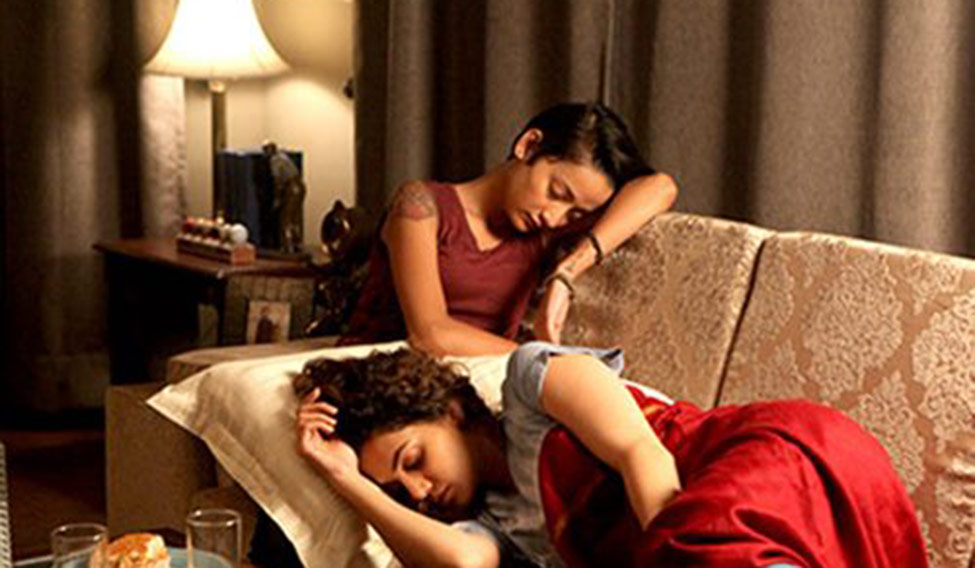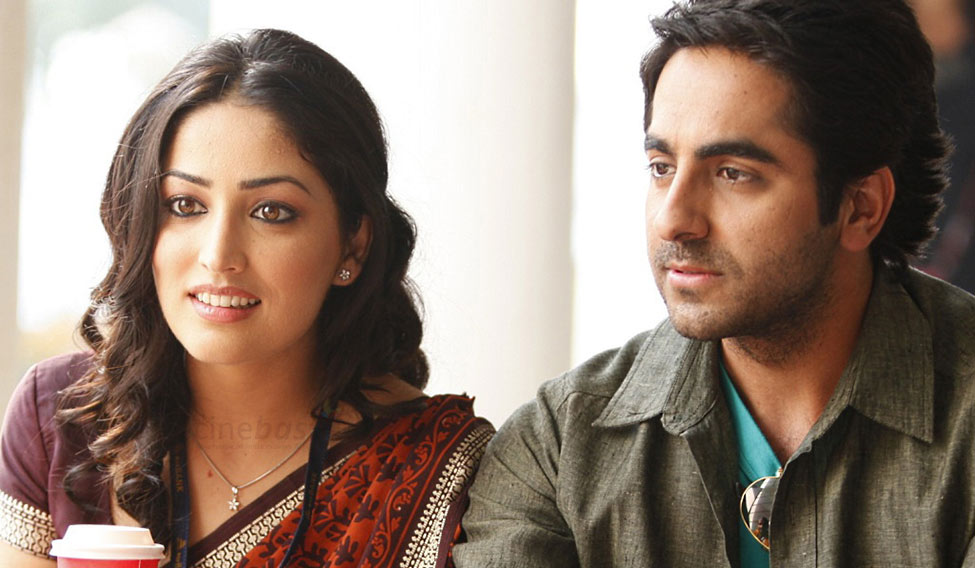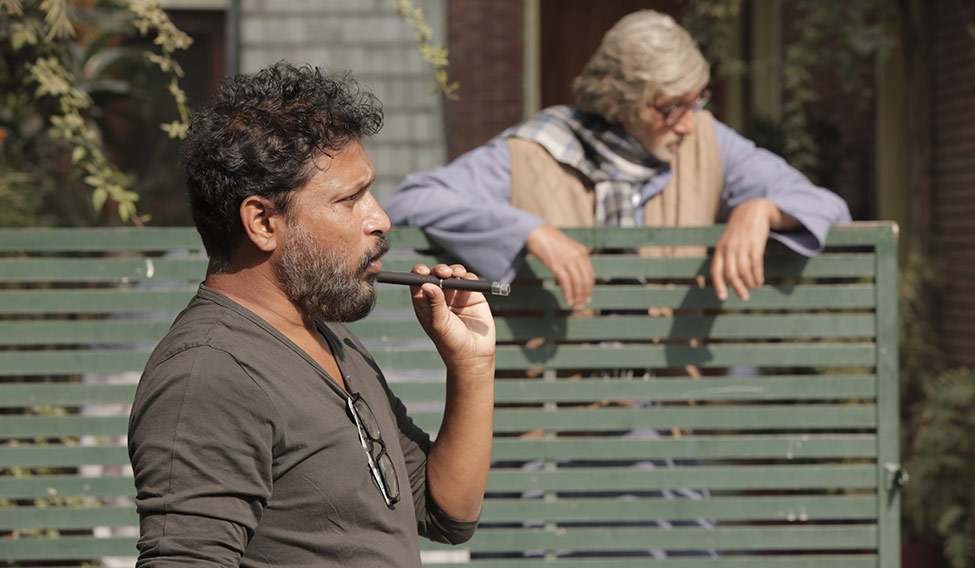That he has always been socially aware was evident from the first film he made in 2005. Shoojit Sircar’s Yahaan captured the life of people stuck in the intricate geopolitics in Kashmir. It didn’t do well at the box-office though. His next film—Shoebite—starring Amitabh Bachchan, about the life of an older man on the path of self-discovery, got shelved. It still disheartens him, as it does Bachchan. But Sircar, who had a prolific career in advertising, bounced back with Vicky Donor, which got him a National Award for providing ‘wholesome entertainment’. The idea around the life of a sperm donor was fresh, to say the least. But, “people had laughed at the idea initially,” he says.
Since then, the move forward has mostly been positive, and his films very different from each other. If Madras Cafe was a highly charged up political drama capturing the Sri Lankan Tamils issue, Piku was a slice-of-life film.
In the last few days, there has been a lot of negativity around the National Awards. Many have expressed disappointment over some of the decisions of the jury, headed by filmmaker Priyadarshan. The one film, however, to have resonated with the jury, the audience as well as the professed critics, has to be Pink, which won the award for Best Film on Social Issues. Sircar, its creative producer, is nothing but elated. “I have absolute faith in the jury,” he says. “You know, everything is very subjective. They have given Pink an award, they have given Piku an award, they have given Vicky Donor an award, they have given Madras Cafe an award. And I humbly accept all those awards. I don’t have any complaints. Though I would have been happy if Mr Bachchan won, or had Taapsee [Pannu] won, or Ritesh [Shah] my writer won, or if my lyricist had won. But those are not my complaints, those are my expectations. I am absolutely okay with what the jury has decided.”
But he never makes a film for awards or even commercial gains, says Sircar. He has advertising to make money from, and his passion for football to keep him engaged. “I make a film to tell stories that I feel are important,” he says. Though, he adds, with a self-deprecating humour, he never thinks the ideas he works on will click at the box-office. “I often tell my friend-producer Ronnie [Lahiri] that we have been lucky all the time that our films have worked,” he says. He recalls how people kept asking what’s the story in Piku. “I said it is about the constant banter between a father and daughter, and the father is always constipated. They wanted to know the storyline. I didn’t have any. My films are about the daily, mundane life.”
Maybe it is his “integrity” that works for him. “I have faith in the story,” says Sircar. “My wife, Jhuma, is my best critic. We discuss quite a lot. We discuss every film that I do. Maybe her decisions work.”
It was Jhuma who had suggested a film on the atrocities against women, after the Nirbhaya case. A little prior to that, during work on the Bengali film Aparajita Tumi that Sircar produced, Aniruddha Roy Chowdhury, its director, had bounced off a similar idea to be shot in Kolkata. Pink, however, was shot in Delhi as Sircar felt it had a pan-Indian appeal.
 A still from Pink
A still from Pink
It is Sircar’s theatre background that has taught him to be aware of the social changes. His long-time friend Shubhendu Bhattacharya, who also co-wrote Madras Cafe, was instrumental in introducing him to the Jana Natya Manch founded by Safdar Hashmi. “They were taking up a lot of social issues related to labour, communal harmony and all kinds of caste issues,” he says. “They were doing adapted plays by [Bertolt] Brecht, short stories by [Leo] Tolstoy. I saw the street life then. And yes, it has definitely helped me, as has my growing up in Delhi.”
The capital city plays an important role in almost all his films. It becomes a character helping in taking forward the script in numerous ways. “Delhi has a cosmopolitan culture where people from all cultures come [together]. It is my long stay in Delhi that has given me this inclination—to see society and bring politics into films,” he says, but adds a disclaimer that he isn’t aligned with any political belief. “Because if you do that, your films will start showing that. An artiste, a creative person, has to show a democratic world. Cinema, at the end of the day, has to be optimistic, [a] perfect world.”
As a filmmaker, he also believes that you should tell a story effectively, but with minimum money. He remembers how during a marriage scene in Vicky Donor, they had asked a family to let their mandap be after the ceremonies got over so that they could shoot. “We didn’t have the budget to showcase a grand Indian wedding and this was the only jugaad,” he says, with a laugh. He still works in the same manner. “There is no other option. My films are completely unconventional, unusual subjects so I have to make my films in a budget cap which my producer Ronnie gives me.”
Aparajita Tumi, his first production venture, was a result of his wife’s insistence on making some contribution to Bengali cinema. “But I told her I can’t do it,” he says. “Having grown up in Delhi, I didn’t have an understanding of the milieu, even if Satyajit Ray is my dictionary and rulebook in filmmaking. It’s important to have that when you are making a film. That’s when I thought of producing the film and getting acclimatised with the environment and the cinema there.”
 A still from Vicky Donor
A still from Vicky Donor
He wasn’t very involved then. But now, he doesn’t hesitate to say that he is an interfering producer. “I did two more films and I was really hands on, interfering and everything,” he says. “I am sorry I am using such a strong word. I won’t impose, but I wouldn’t stop giving my views. And most of the time, my directors have accepted to do it.” To reveal the story of what happened with the girls at the party in Pink only during climax was Sircar’s idea, and it worked effectively.
However, with the recent award, he is suddenly feeling too responsible. “When you get an award for making a socially-conscious film, you suddenly feel the pressure,” he says. “I have always been responsible, but I don’t want to live under this pressure. Maybe that is why I mostly stay in Kolkata with my family to avoid the pressure that Mumbai brings. The city doesn’t come onto you. Everything is possible under pressure, but filmmaking isn’t. Cinema is an open-hearted conversation with the audience, and if you build any pressure, that conversation witnesses a block.”
Sircar is currently working on his next script with Juhi Chaturvedi (who also wrote Vicky Donor and Piku), while his script on martyr Udham Singh is ready. But his dream to make a film on football, capturing the story of Mohun Bagan, is yet to be penned.








